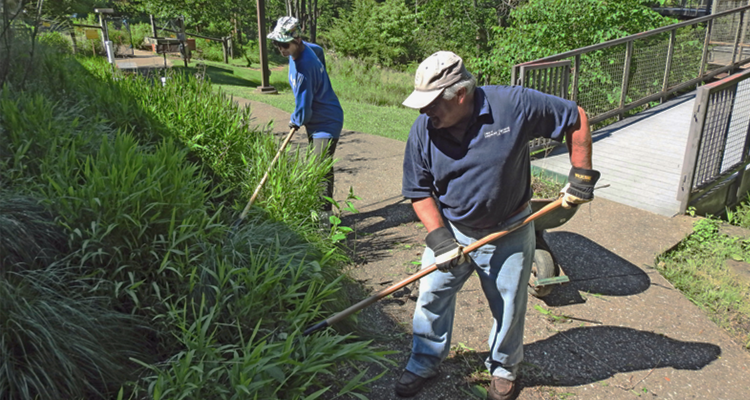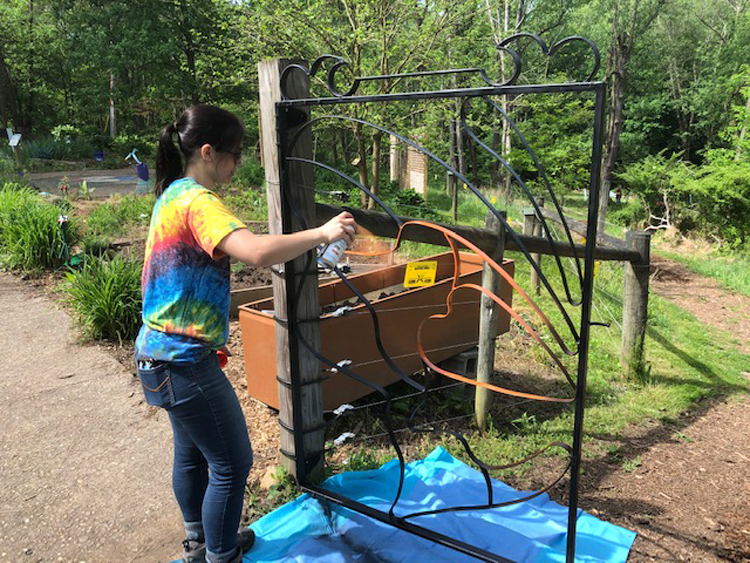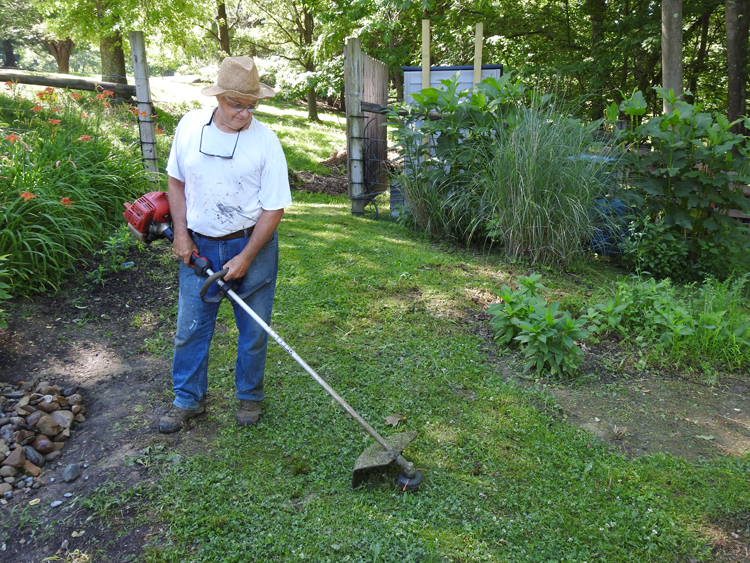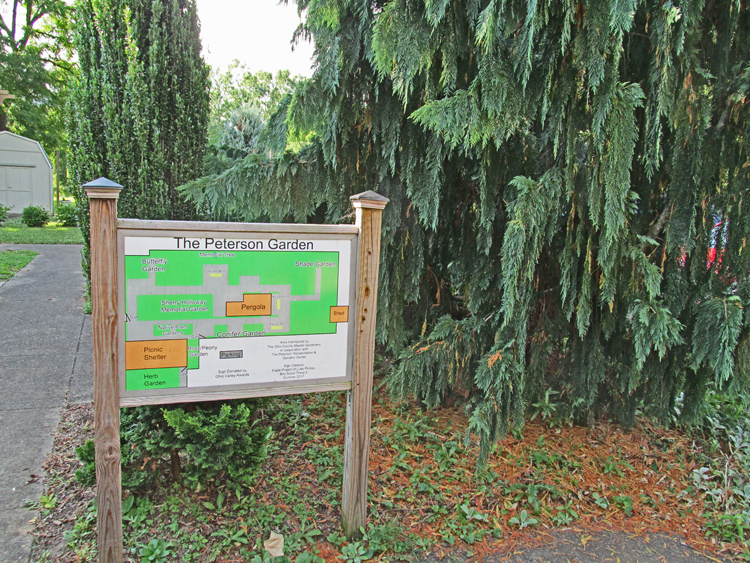Did you like to play in the dirt when you were a little girl or boy? Do you still like to play in the dirt? If so, then you are a good candidate for the Master Gardener program.
The Master Gardener program combines the characteristics of a civic organization with those of an educational program.
Karen Cox, West Virginia University Extension Service’s Ohio County agent, coordinates the educational portion of the Master Gardener Program in the county and serves as the liaison between the Ohio Valley Master Gardeners organization and the West Virginia Cooperative Extension Service.
“Becoming an Extension Master Gardener is a labor of love,” she said. “First, one must apply to the program and commit to becoming a WVU Extension Volunteer. Once accepted and registered, students receive 40 hours of horticultural education along with a ‘textbook.’ Each student must pass an exam (not as scary as it sounds) and give 40 hours of horticultural volunteer service alongside others who share their gardening passion.
“Once each of these steps is complete, participants earn their certification as an Extension Master Gardener. They receive an official nametag and make a new group of friends in the process,” she said.
While each location has its own attributes, the Master Gardener Program is recognized in all states and several countries. Often, after moving to a new state, a Certified Master Gardener simply needs to reach out to the local land grant college to transfer his or her certification to join up with a ready-made group of gardening enthusiasts in their new home.
PLANTING THE SEED
The “textbook” that Karen mentioned consists of the Master Gardener Handbook provided by the Cooperative Extension Service. The small registration fee for the classes includes the MG Handbook. In print form, the handbook fills a 3-inch binder. It is also available on CD in PDF format.
According to the Ohio Valley Master Gardeners Facebook page, the following is a description of the program:
“We are a volunteer outreach program run by WVU Extension Service. You start with 40 hours of training during a 12-week program where you’ll learn about a variety of things including: botany, plant propagation, entomology, pesticides and pest management, plant disease, soil and fertilizers, turfgrass management, vegetable gardening, gardening equipment, tree fruits, small fruit, pruning, landscape design, woody ornamentals, indoor plants, herbaceous plants, garden animals and teaching methods. From there, pass a test and complete 40 hours of volunteer work and you’ll have earned the right to call yourself a WVU Extension Master Gardener.”
Cox organizes and manages the Master Gardener classes, which, thanks to the generosity of West Virginia Northern Community College, typically meet in the B&O building of its Wheeling Campus. Most of the weekly classes feature one or more guest speakers who are experts in the various horticulture-related fields. Many of the classes include hands-on experiences. During the last few classes, participants take turns sharing their gardening ideas with their classmates. The Master Gardener Manual provides reference materials for most of the classes.
Karen noted that the schedule and the list of topics discussed change slightly from year to year, depending on the needs of those enrolled in the class and the availability of speakers. Click here to see the schedule of classes and speakers for the spring 2020 Ohio County Master Gardener course.
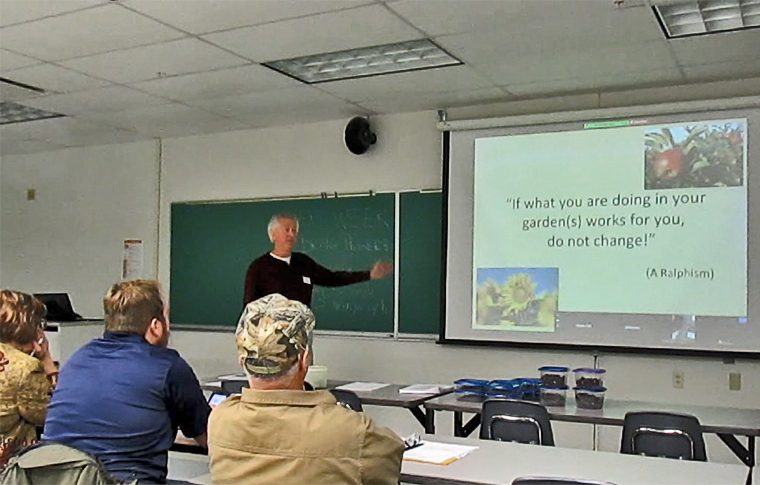
The membership in the class this spring represented a diverse group of people. Some of the students in the class were experienced gardeners — who still learned much from the course. Others were gardening for the first time. Some of the participants grew produce in high tunnels (a sort of greenhouse) for sale at the local farmers’ markets. Others in the class were gardening in small raised beds. One family was using old tractor tires for raised beds.
Although the COVID-19 pandemic forced the class to go online via Zoom for the last half of the course, the interaction among the students added to the educational value of the course because so many approaches to gardening were being used. Karen emphasized often that there was no correct way to garden. One of her favorite sayings was, “Do what works for you!”

EDUCATION CONTINUES TO GROW
After earning the initial Master Gardener certification, participants must renew the certification every year by participating in an additional 10 hours of educational activities related to gardening and participating in an additional 20 hours of community service. Periodic email blasts from the Ohio Valley Master Gardener organization inform participants about educational and service opportunities. Educational opportunities include lectures, seminars, workshops, field trips and a host of online events. Most of those educational activities are free and many are open to the general public. In addition, Master Gardeners often provide educational activities for other members or for the public.
Working cooperatively with the Oglebay Institute Schrader Environmental Education Center at Oglebay Park, the Ohio Valley Master Gardeners present a series of educational programs that is open to the public. At the 2019 Extension Master Gardener State Conference, the Ohio Valley Master Gardeners were honored for that educational series when they received the Team Project Excellence Award. For more information about the educational program and the award, click here.
BLOSSOMING IN THE COMMUNITY
In addition to sharing a love of gardening, the Master Gardener members share a love of community service. Just about any horticulture-related service project fulfills the Master Gardener community service requirement. The first project undertaken by members of the spring class this year was to assist with Indoor Gardening Day, held in February at the Delf Norona Museum at the Grave Creek Mound Archaeological Complex in Moundsville. Members of the class made presentations, demonstrated how to make pots for bedding plants using newspapers, how to plant seeds, how to make paper flowers and other gardening related skills.
The event was organized and coordinated by former Master Gardener and Grave Creek Mound Archaeological Site Programming Coordinator Andrea Keller.
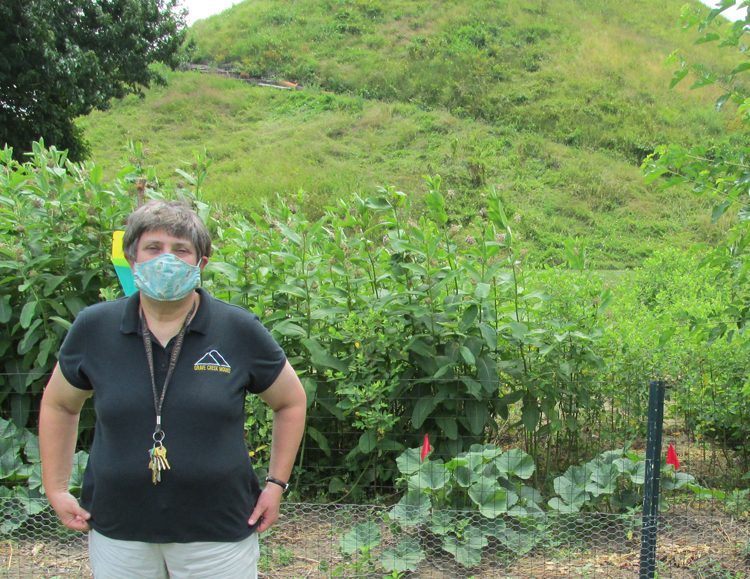
While there, Andrea showed the group the interpretive garden, which was created 10 years ago with the help of a group of the Master Gardeners.
Because the indoor gardening day took place in February, the garden was dormant. But a subsequent visit this summer revealed what is now growing. The plot provides Andrea with the opportunity to combine her love of gardening with her love of history. With seeds provided by the Seneca Nation, Monticello, Seed Savers and seeds representing varieties found at archeological sites or mentioned in historical documents, the garden provides a glimpse into the past. The harvest from the garden is used for museum displays and educational programs.
A group of the students from the spring 2020 Master Gardener class is working with Master Gardener Janelle Loh to renovate and update the Corson Butterfly Garden near the Schrader Center at Oglebay Park. Janelle and her family have been taking care of the garden for about the last five years, so they are pleased to have the help from the new Master Gardeners. This spring, the Master Gardener volunteers, helped to clear weeds and brush from the garden, planted additional flowers, created walking paths in the garden and mulched the paths with wood chips. Some of the volunteers installed a small water fountain in the garden.
HOME-GROWN HELP
The FARMacy project with Wheeling Health Right is the product of another Master Gardener partnership. Working with Wheeling Health Right, some of the Master Gardeners provide fresh home-grown produce. Health care professionals assist diabetes patients at Health Right learn about healthy eating habits by introducing more fresh fruits and vegetables into their diets. Current Ohio Valley Master Gardeners President Ralph Duncan is one of the volunteers who assists with that project.
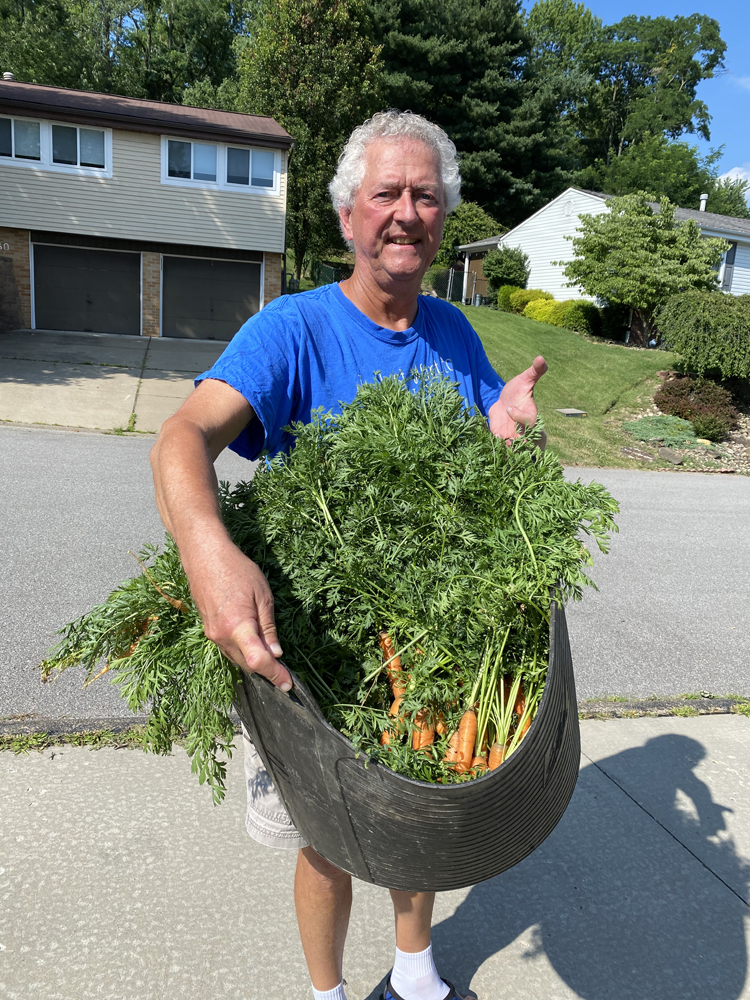
Ohio Valley Master Gardener President Ralph Duncan with a basket of carrots grown in the raised bed garden at Wheeling Health Right. Dunkin and his wife Terry harvested these carrots for the July 9 distribution of weekly food at the Wheeling Health Right FARMacy which provides vegetables and fruits for this program to improve the diets of diabetic patients. The Duncans have been involved with growing food in Wheeling Health Rights demonstration gardens for the last four years.
TREE TIME
This spring, the Ohio County Cooperative Extension Service sponsored an Arbor Day tree-planting program to add beauty and shade to various parks and ballfields in the Wheeling area. Fifty-two volunteers adopted and planted 104 trees at 20 parks and playgrounds in the Wheeling and the surrounding area. The Master Gardeners accounted for one-third of those volunteers.
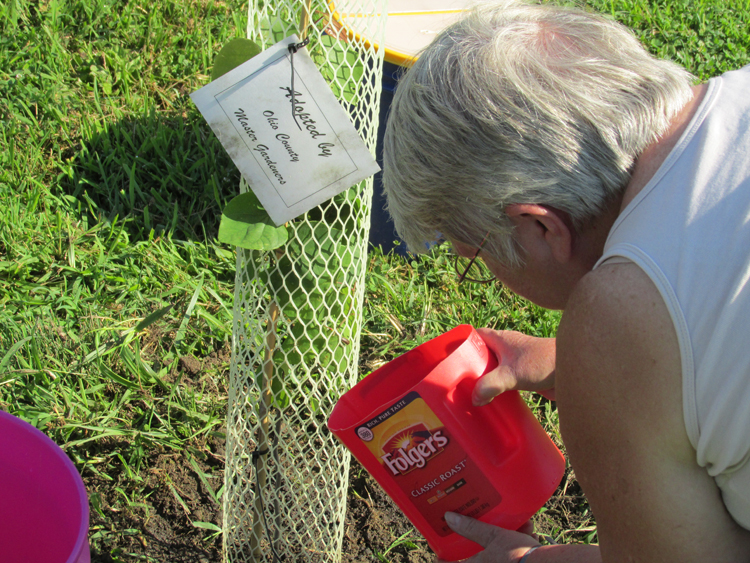
These are a few examples of volunteer projects undertaken by Master Gardener volunteers. If you are concerned about being able to meet the 40-hour volunteering requirement, you need to know that just about any volunteer gardening or horticulture-related activity can be used to fulfill those hours. Some of the experienced gardeners volunteer to answer questions from new gardeners who call the Cooperative Extension Office for advice. Others work with teachers and schools, while some write stories about gardening for newspapers, websites or other publications.
Participation in the Master Gardeners starts when you enroll in the class, which the Ohio County Cooperative Extension Service usually offers each spring. Because of the disruption caused by the COVID-19 pandemic, the West Virginia Cooperative Extension Service has announced that a new series of online Master Gardener classes will be offered starting later this summer.
For more information, call 304-234-3673.
• Earl Nicodemus is retired after 40 years as a professor of Instructional Technology at West Liberty University. He helped to form the West Liberty Historical Society, and he and his family maintained the historic West Liberty Cemetery from 1985 to 2016. In 2016, Earl was named as a West Virginia History Hero. His other interests include gardening and fishing.


